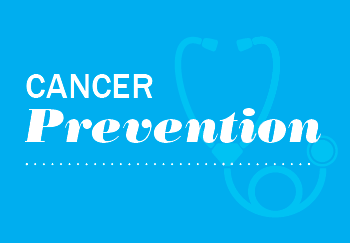 If there’s a history of cancer in your family, you may be concerned about your own cancer risk. While many cancers develop spontaneously, others, like breast or ovarian cancer, may be more likely to run in families as certain genetic mutations are passed on from one generation to the next.
If there’s a history of cancer in your family, you may be concerned about your own cancer risk. While many cancers develop spontaneously, others, like breast or ovarian cancer, may be more likely to run in families as certain genetic mutations are passed on from one generation to the next.
While it’s impossible to predict with absolute certainty whether you’ll get cancer, you can help to identify your likelihood of developing the condition through genetic testing that identifies specific genetic mutations that cause cancer.
But before any screening tests are performed, your doctor may recommend genetic counseling. The counseling process was developed to help you better understand your cancer risk and make more informed decisions about your cancer screening options.
What Is Genetic Counseling?
Instead of performing medical tests or examinations, genetic counselors search for specific information about your family to help determine your risk of developing certain types of cancer or other types of inherited diseases. Your genetic counselor uses the information you share to understand your chances of being affected by certain types of cancers.
Why Should You Speak With a Genetic Counselor?
People visit genetic counselors for a variety of reasons. For most, this includes a family history of a specific type of cancer. In addition to helping you identify your risk, though, genetic counselors can help you learn more about genetic testing and other screening options for certain types of cancer. Your genetic counselor will also discuss the limitations of any screening tests you choose to participate in. And help you prepare for the emotional and psychological consequences of your test results.
What Should You Expect?
Meeting with a genetic counselor is one of the best ways to better understand your risk for developing cancer, especially if there is a history of the condition in your family. Before your meeting, you’ll receive an intake packet with several forms that your counselor uses to put a family medical tree together.
“During your appointment, we’ll take a detailed family and medical history from you to best address any inherited cancer risk in you or your family,” said Martha Thomas, MS, UVA Cancer Center’s genetic counselor. “To help prepare, speak with your family members about their cancer history before your appointment. Your counselor will want to know who in your family was diagnosed with what cancers and at what ages. The more specific and accurate you can be, the more detailed your counselor can be about your risks and recommendations.”
You may also want to ask questions during your appointment. Genetic counselors can help you find answers to many common questions, including:
- Will I get cancer if a family member has it?
- How could genetic testing benefit me?
- What does genetic testing involve?
- How does knowing my risk for cancer help me?
Genetic Testing for Cancer
If you think you may have a family history of cancer, talk to your doctor or a genetic counselor. They will help you decide if genetic testing for cancer is right for you.
If your personal and family medical history hints at an increased cancer risk, your genetic counselor can provide you with information about what may be most beneficial to you. If necessary, he or she will also connect you with one of UVA Cancer Center’s doctors for further evaluation.
Friends and family members are welcome at genetic counseling sessions. A history of cancer in your family can be scary. But genetic counselors are ready to help you better understand your cancer risk. Your appointment is a vital part of determining your risk for developing cancer. It’s important to bridge the gap between you and available cancer screening tests.
